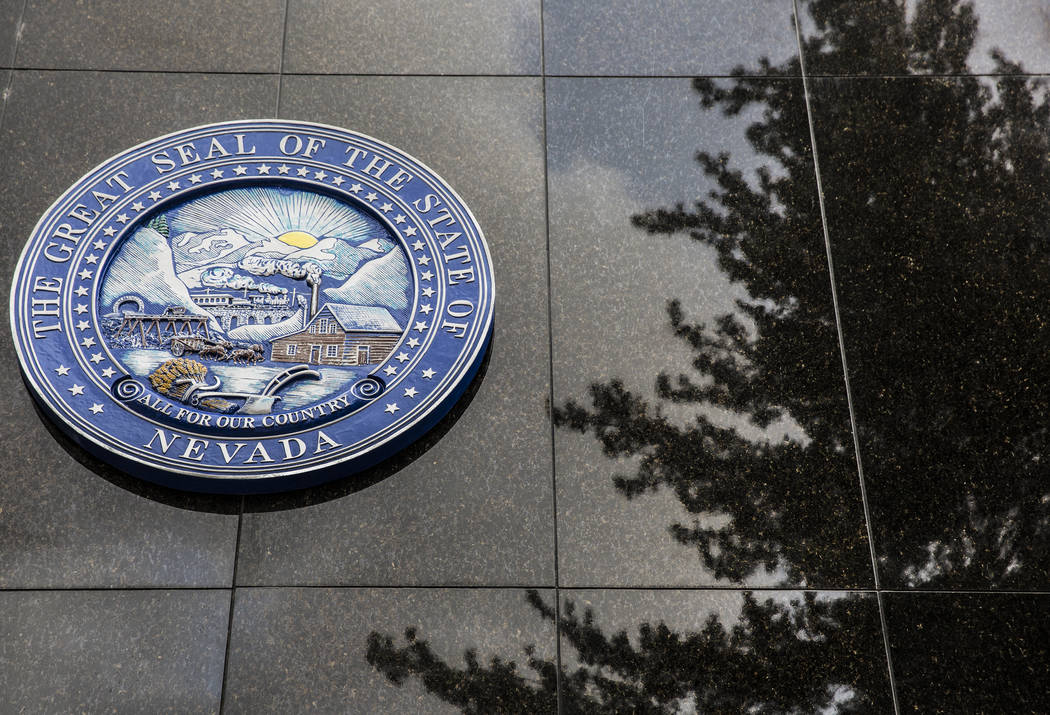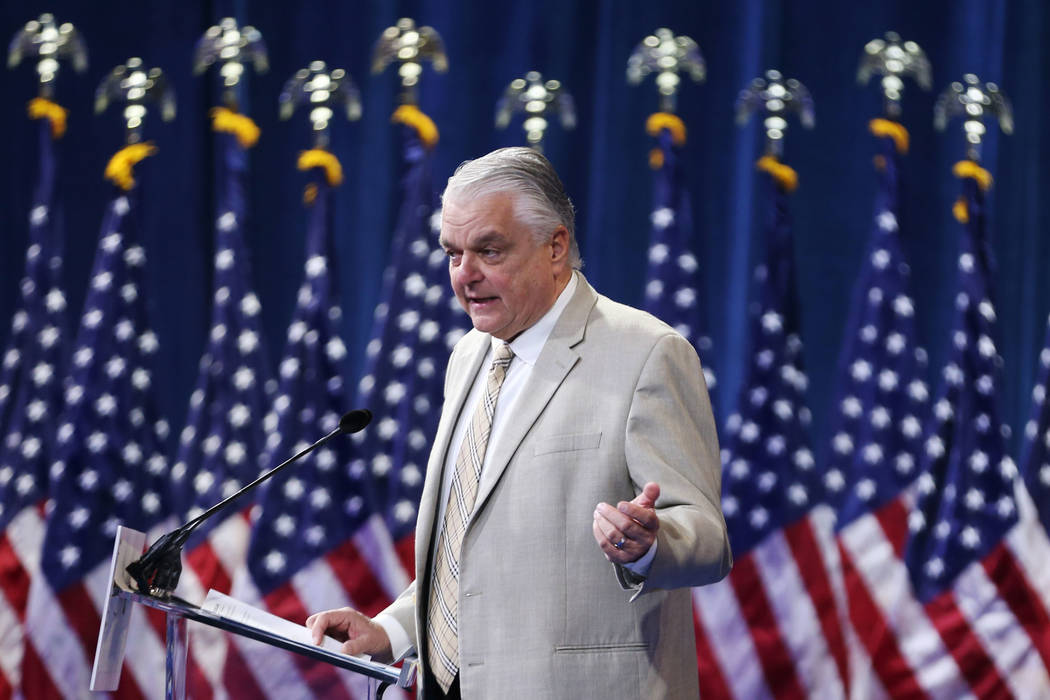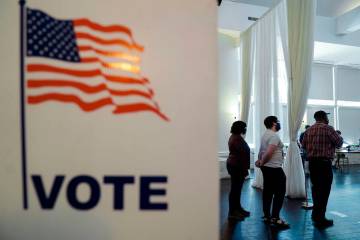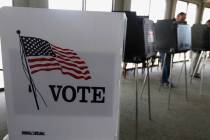Nevada state employee harassment claims increase 50%
CARSON CITY — Sexual harassment and discrimination complaints filed by state employees in Nevada spiked by nearly 50 percent in 2019 compared with the year before, according to data released by the state this week.
In 2019, state workers filed 187 total complaints for sexual harassment and discrimination, up from 129 in 2018, according to figures from the state’s Sexual Harassment and Discrimination Investigation Unit provided to the Review-Journal.
Two of the state’s biggest agencies — the Department of Corrections and Health and Human Services — saw the majority of complaints in both years and saw notable increases of seven and 13 total complaints filed, respectively. The DMV and Department of Public Safety each saw complaints rise more than threefold, jumping from four to 17 and four to 13, respectively.
Those increases, however, do not necessarily indicate more harassment happening in state offices, said Ann C. McGinley, co-director of the Workplace Law Program at UNLV.
That uptick comes amid the backdrop of the #MeToo movement and a pledge early in Gov. Steve Sisolak’s term to address harassment and discrimination in state agencies, which experts say can have an empowering effect so that people feel more comfortable coming forward.
“The research all shows that when you take it seriously, when you have a good process, especially in the first year or two after establishing it, then you do see an increase,” McGinley said. “It’s considered a good sign.”
Little changes
But the governor’s pledge has seen little to no changes more than a year later despite a task force’s recommendations to overhaul many of the state’s laws and policies.
Minutes after being sworn into his first term in January 2019, Sisolak used his first official act as governor to sign an executive order aimed at stamping out sexual harassment in the workplace for state employees. That order created a task force with the goal of coming up with recommendations to improve the state’s sexual harassment and discrimination policies on training, reporting mechanisms and investigation procedures.
“With this order, we intend to send a clear message that sexual harassment and discrimination has no place in Nevada. We want to make it a reality that our state employees must lead the way in this regard,” Sisolak said the day he signed the order.
Sisolak’s spokesman, Ryan McInerney, said in a statement Tuesday that Sisolak viewed the task force as “the first phase in a larger process to implement meaningful change.”
“The governor is grateful to the task force for its intensive work in gathering and reviewing sexual harassment and discrimination policies and making recommendations to improve Nevada’s approach to protection from sexual harassment and discrimination in the workplace,” McInerney said.
The governor’s task force, which consisted of 11 members and was chaired by Attorney General Aaron Ford, reviewed the policies of all state agencies under the executive branch during its four meetings between March and May.
There was no set deadline for the group to deliver recommendations to the governor’s office, but there was a push from some in the group to finalize them before the end of the 2019 Legislature so changes could happen quickly.
In a May 7 meeting of the task force, Ford noted that what to do with the recommendations would be up to Sisolak and the governor’s office, saying that they may or may not decide to act on them during the 2019 session and could “just consider it for the next session in 2021,” according to the meeting minutes.
But in that same meeting, Ford “stressed his preference of trying to get a report of recommendations to the governor before the session is over to avoid having to carry the issue over to the 2021 session.”
List of recommendations
The group finalized its recommendations in mid-May and sent them over to the governor’s office by the end of the month. Some of those recommendations from the task force included:
— Adopting a law against sex- and gender-based harassment because Nevada statutes only specified discrimination.
— Requiring the Department of Administration to adopt a policy that defines illegal harassment and discriminatory behavior in the workplace, creates training requirements for employees and managers, and outlines the complaint process.
— Requiring private vendors that contract with the state to have policies against sex and gender based harassment and discrimination.
— Updating the executive branch’s policy to adopt gender-neutral language and add sex and gender harassment to make it more inclusive.
But when the legislative session ended in early June, none of those changes had made it into a bill, and none of the laws was changed.
More than a year after Sisolak signed the executive order, none of the recommended policy and administrative code changes, which can be amended outside of the Legislature, have been made either.
Just the first step
Ford, in a statement sent Tuesday, echoed the governor’s remarks that the task force was just the start of addressing the issue.
“The thoughtful analysis and recommendations from the Task Force is just the first step to ensure that Nevada’s workers are free from harassment and discrimination,” Ford said. “Governor Sisolak took leadership on this issue by appointing the task force, and I will continue to work with the governor, his agencies, and leaders across the state to create a culture of dignity and respect for all.”
McInerney said that the Department of Administration has been distilling the task force’s recommendations and that new department Director Laura Freed, who was appointed last month, is “committed to this goal and the work that is underway.”
“Any recommendations from the Task Force that require legislative approval continue to be fully analyzed and vetted this interim, and we expect statutory changes may be forthcoming next session,” McInerney said.
“The governor is fully confident that this process will be prioritized under Director Freed’s leadership in coordination with the attorney general’s office,” he added.
In a statement, Department of Administration spokeswoman Stephanie Klapstein said that the department has made some changes to sexual harassment training for state employees and that the department is “undertaking a thorough review of the processes and procedures for complaints and investigations in order to determine where further implementation and oversight authority may be needed.”
McGinley, who also served on the governor’s task force, cautioned that inaction could have a detrimental effect on reporting harassment and discrimination among state employees.
“It could cause a problem, and possibly a reversal, if people don’t believe that they’re serious about the system,” McGinley said.
McGinley said that she believes the governor and attorney general are committed to addressing the policies but that “I think that government just moves very slowly.”
“Unfortunately that’s the case,” she said. “I hope these things will get done soon, and I think they will make a big difference.”
Contact Capital Bureau Chief Colton Lochhead at clochhead@reviewjournal.com. Follow @ColtonLochhead on Twitter.






























